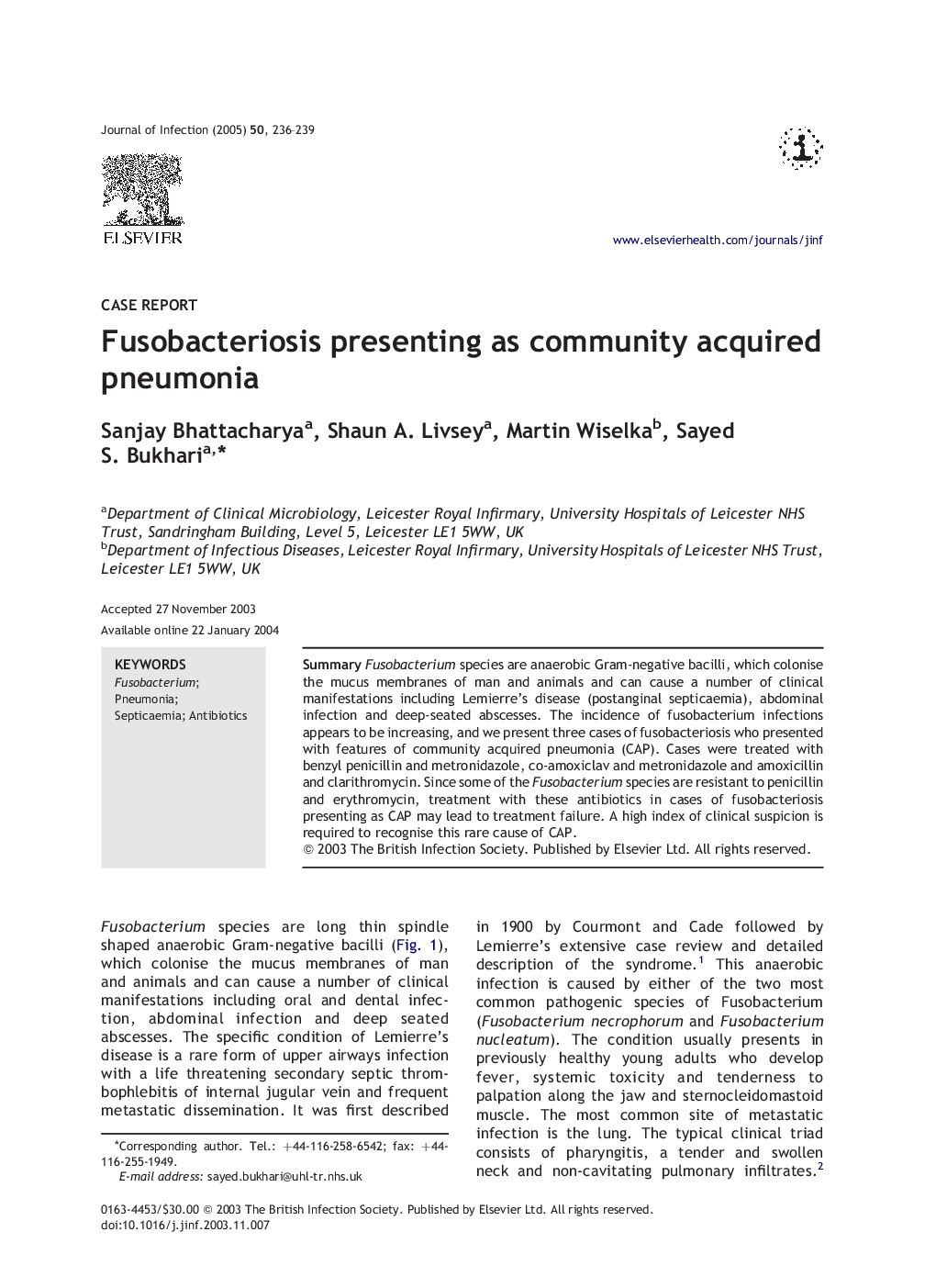| Article ID | Journal | Published Year | Pages | File Type |
|---|---|---|---|---|
| 9270958 | Journal of Infection | 2005 | 4 Pages |
Abstract
Fusobacterium species are anaerobic Gram-negative bacilli, which colonise the mucus membranes of man and animals and can cause a number of clinical manifestations including Lemierre's disease (postanginal septicaemia), abdominal infection and deep-seated abscesses. The incidence of fusobacterium infections appears to be increasing, and we present three cases of fusobacteriosis who presented with features of community acquired pneumonia (CAP). Cases were treated with benzyl penicillin and metronidazole, co-amoxiclav and metronidazole and amoxicillin and clarithromycin. Since some of the Fusobacterium species are resistant to penicillin and erythromycin, treatment with these antibiotics in cases of fusobacteriosis presenting as CAP may lead to treatment failure. A high index of clinical suspicion is required to recognise this rare cause of CAP.
Related Topics
Life Sciences
Immunology and Microbiology
Applied Microbiology and Biotechnology
Authors
Sanjay Bhattacharya, Shaun A. Livsey, Martin Wiselka, Sayed S. Bukhari,
